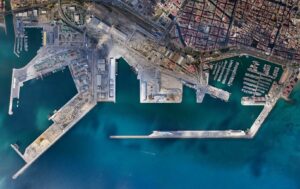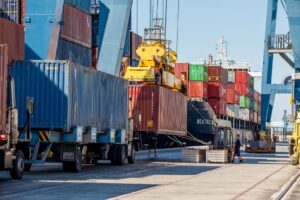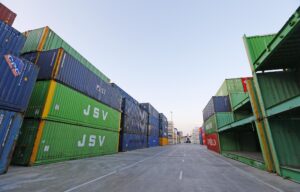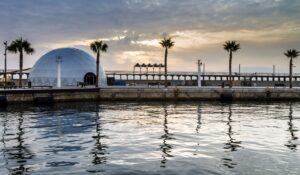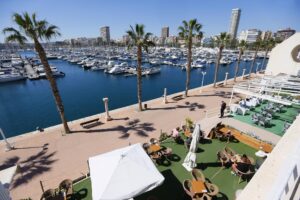-
Port Authority
-
Port Authority
Dependent on State Ports, it is the public body in charge of managing one of the 46 Spanish ports of general interest: the port of Alicante.
-
Port Authority
-
Port Community
-
Port Community
A comprehensive vision is essential to improve productivity and connectivity, the Port Community integrates all participants in logistics and business operations
-
Port Community
-
Deal
-
Deal
The port is essential in the logistical gear of the province, and of the state economy. We are always connected to offer you solutions.
-
Deal
-
Sustainable innovation
-
Sustainable innovation
The port is a space for open innovation, learning development, collaborative work and a cooking workshop
-
Sustainable innovation
-
Environment
-
Environment
One of the strategic priorities of the Port Authority is caring for the environment and optimizing port activities focused on sustainability
-
Environment
-
City port
-
City port
Alicante, a seafaring city, has grown through the centuries strengthened by its port. Its climate, the sun, places open to the city, to enjoy them, to walk them, to live them.
-
City port
Waste treatment
Since time immemorial, the sea has been considered the receptor of waste generated by human activity, both on land and in the sea itself. The cumulative effect over time, as well as the increase in waste, both in quantity and in harmful effect, are exhausting the seas’ and oceans’ capacity for biological regeneration. Marine pollution caused by human use of the seas causes disturbances in the ocean ecosystem in such a way that the effects will rebound on humans in the form of food contamination, coastal alteration, etc.
The big disasters that have occurred in our seas and oceans have created a strong social awareness of the serious polluting effects of an accidental or intentional spill of hydrocarbons and other similar products, but the serious harm caused by waste generated by daily shp activity, which is discharged directly into the sea, such as bilge waters, sewage or solid waste is not taken into account.
This environmental damage can be avoided by delivering this waste to any stopover port, where it can be treated for subsequent delivery to a recycling or destruction facility, or for discharging into the public sewage system or even into the sea once the environmental requirements for this are met.
Further, much of this waste can be recovered and recycled, reducing the associated environmental costs.
The MARPOL 73/78 Convention is an international agreement ratified by a large number of countries, among them Spain, to prevent sea and ocean pollution caused by sea traffic and by potential spills of oils/hydrocarbons or other harmful substances. Unless expressly authorised by the Harbour Master’s Office, all ships must deliver any waste they have generated before leaving the port, unless the Captain can demonstrate that there is sufficient storage capacity on board until the next stopover in a port that has adequate reception facilities.
Salvo autorización expresa de Capitanía Marítima, todos los buques deben hacer entrega de los desechos que hayan generado antes de abandonar el puerto, a menos que el Capitán pueda demostrar que dispone de una capacidad de almacenamiento suficiente a bordo hasta la siguiente escala en un puerto que disponga de instalaciones adecuadas de recepción.
For the Port Authority, protecting the marine environment constitutes one of its environmental priorities and, in this regard, it has regulated the provision of the port waste collection service, under the International Convention for the Prevention of Pollution from Ships (MARPOL) and current legislation. It has set out the operating and control practices and the delivery of waste by ships to the port reception facilities for proper environmental management, which safeguard our marine environments.

